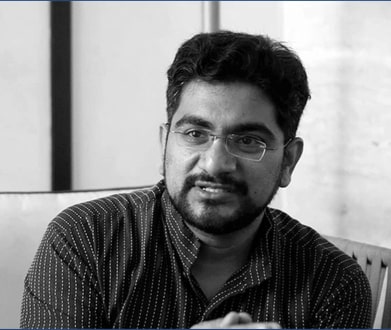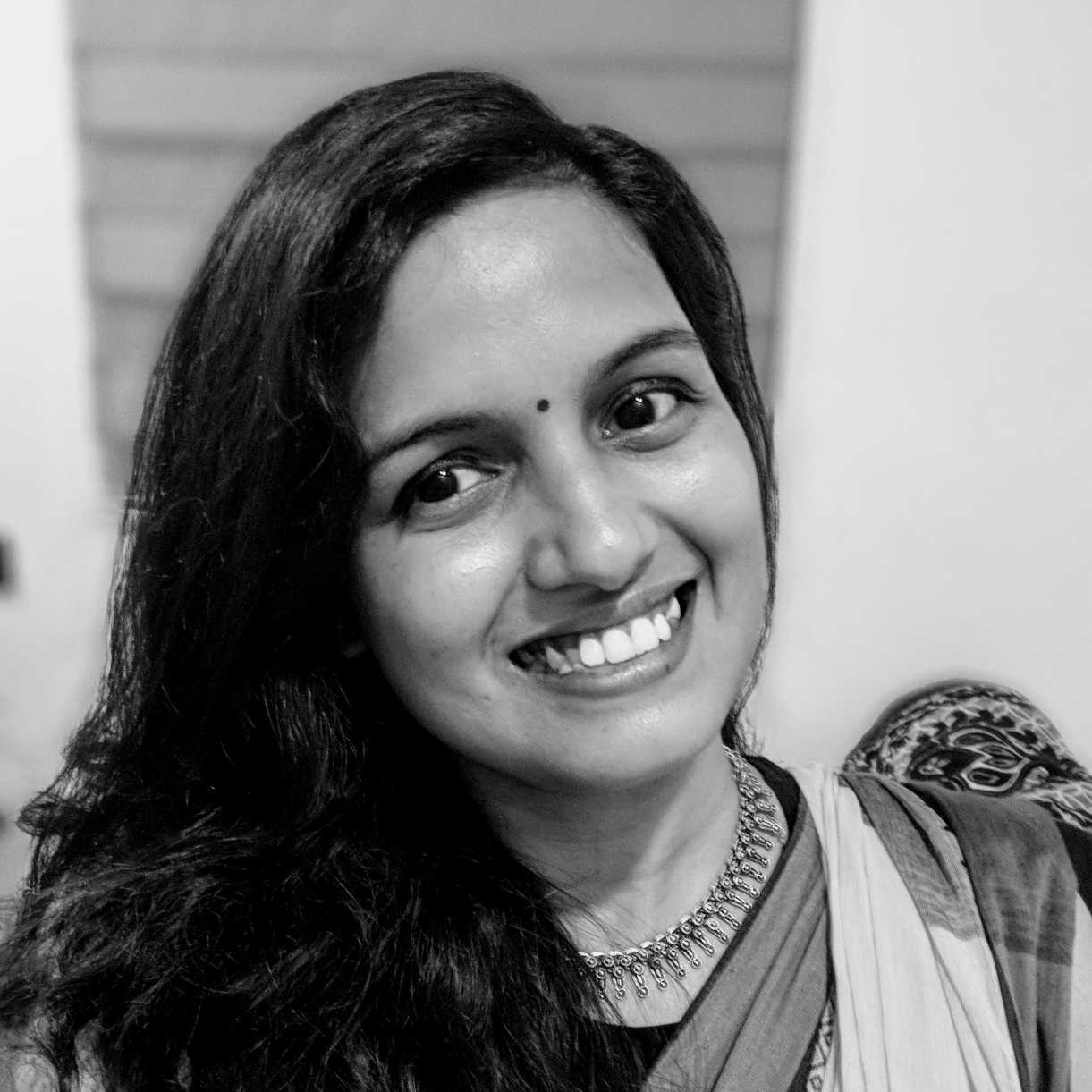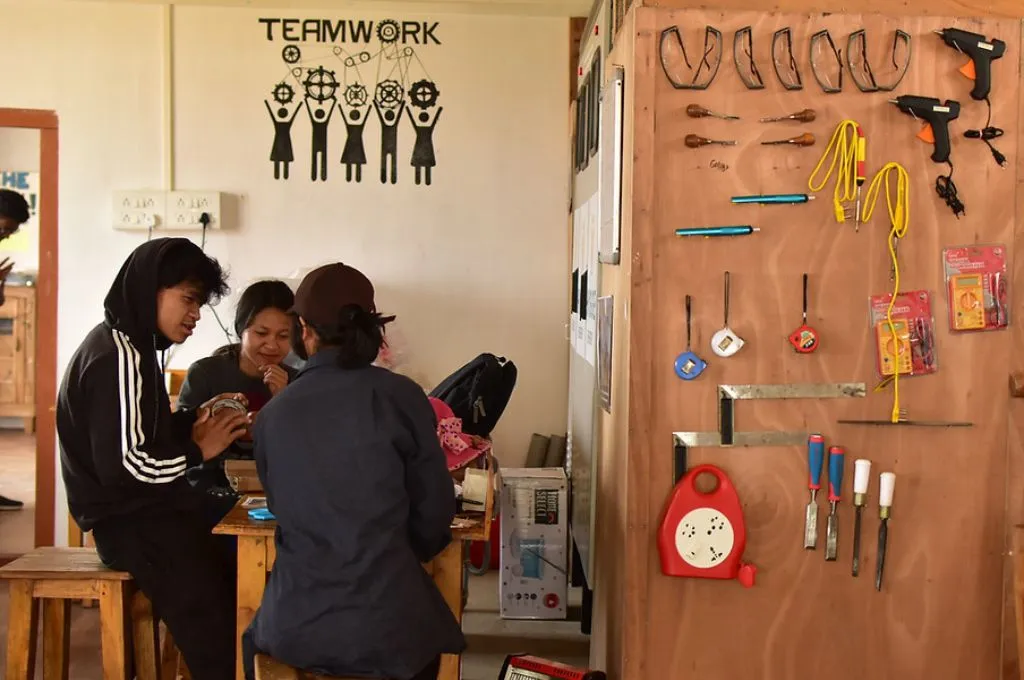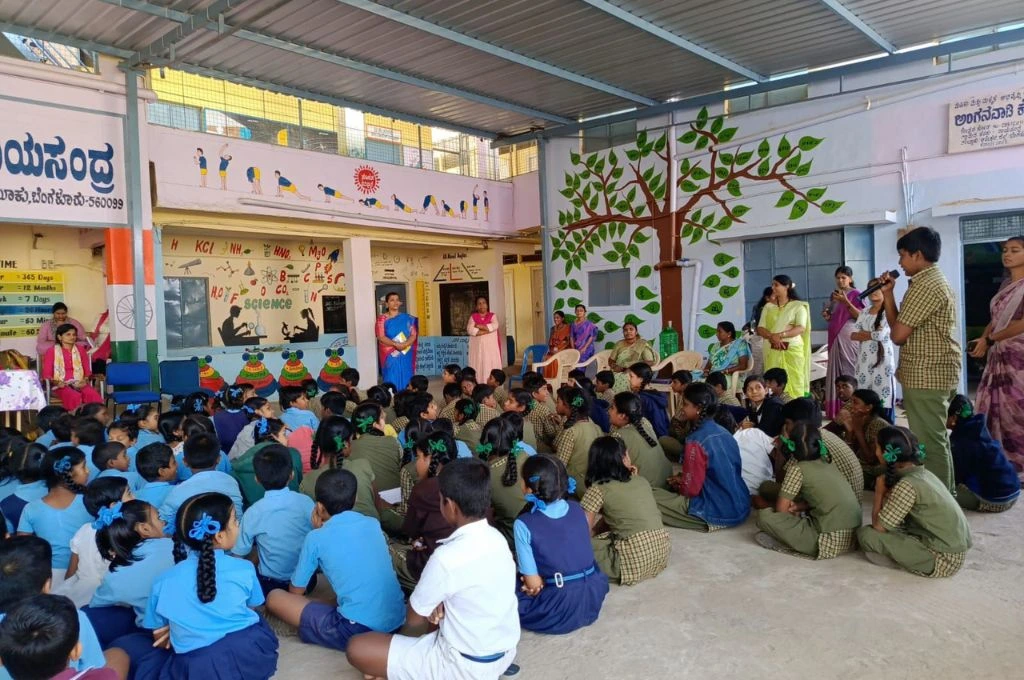Most social entrepreneurs, like ourselves, are inspired by the people we meet in government leadership positions, be it passionate bureaucrats or elected representatives. We take their verbal cues as proof that the ‘entire system’ is moving forward.
However, we almost always neglect to see the people below them—the middle management rung. Similar to how critical this layer of people is to any organisation, the middle management in the government system (directors, deputy directors, district and block officers, etc), has to look over both the execution decided by top leadership, as well as the interests of the several people they manage.
Take for example, the middle management of the Department of Education. On average, a District Education Officer (EO) in India manages more than 2,000 schools with a staff of approximately 5,000 individuals, including teachers. Similarly, a block education officer (BEO) handles 100-150 schools on average. In the state of Maharashtra, the EOs and BEOs make up only 500 odd officers from the 8,000+ officer cadre of the state, spread across both administrative and academic bodies.

Needless to say, this critical layer of middle managers plays a significant role in ensuring that any large scale reform within schools is able to sustain and thrive. Despite this, their voices are heard less than needed, and they are given few, if any, opportunities to expand their competencies.
In order to understand the needs of middle management government officers in the education sector, the Leadership For Equity team conducted a survey in August 2019 of more than 900 officers across different cadres of Maharashtra. The three-step survey process included an online survey followed by cadre-specific focus group discussions and in-person meetings.
Conducted in partnership with the Maharashtra State Council of Educational Research and Training (MSCERT) and Department of Continuous Professional Development, the survey aimed to understand the current reality of these officers, the gaps they are faced with, and solutions that can be implemented to address them.
What the data tells us
As government departments have a huge repository of data with an ongoing process for data collection, approximately 80 percent of officers across academic and administrative cadres highlighted the need for better knowledge management processes.
Most officers are involved in managing data for activities, such as completing service book for all teachers in their block or district, preparing letters, gathering information for Legislative Assembly questions, filling RTI reply requests, managing different schemes for departments beyond education, and dealing with documents related to the implementation of Samagra Shiksha Abhiyan, as well as CSR fund management.

The lack of streamlined structures and requisite tools to manage these activities, coupled with the urgency of the tasks, leads to increased manual workload and subsequent disinvestment in their work.
Similarly, about 70 percent of officers stated that having streamlined impact measurement tools would improve their programme implementation and reduce redundant data collection. Activities for impact measurement include data collection for monitoring of state programmes run by SCERT or district authorities, exam-related data, and collecting programme feedback for government schemes at a school, teacher, and student level.
Officers ranging from block officers, extension officers [vistar adhikari], kendra pramukhs [cluster level], and teachers form the core field team for data collection.
Sixty-nine percent of officers across different cadres felt that using technology would make their work much easier. However, some of these officers admitted to not using technology at work due to a skill gap. Basic online productivity tools such as Google Drive or Excel were also not utilised for daily operations.
“Currently, only WhatsApp is being used, but using apps such as Google Forms and Google Sheets would be very helpful. There is no online data collection, which leads to the cost of a huge amount of time for analysing data.” – Lecturer, District Institute of Education and Training (DIET).
“We collect data manually or through forms (sometimes). The zilla sends a letter saying what data they want, but they don’t realise the scope of how much it is and how long it would take to collect the data. Also, people are not as tech-savvy as they think.” – A kendra pramukh.
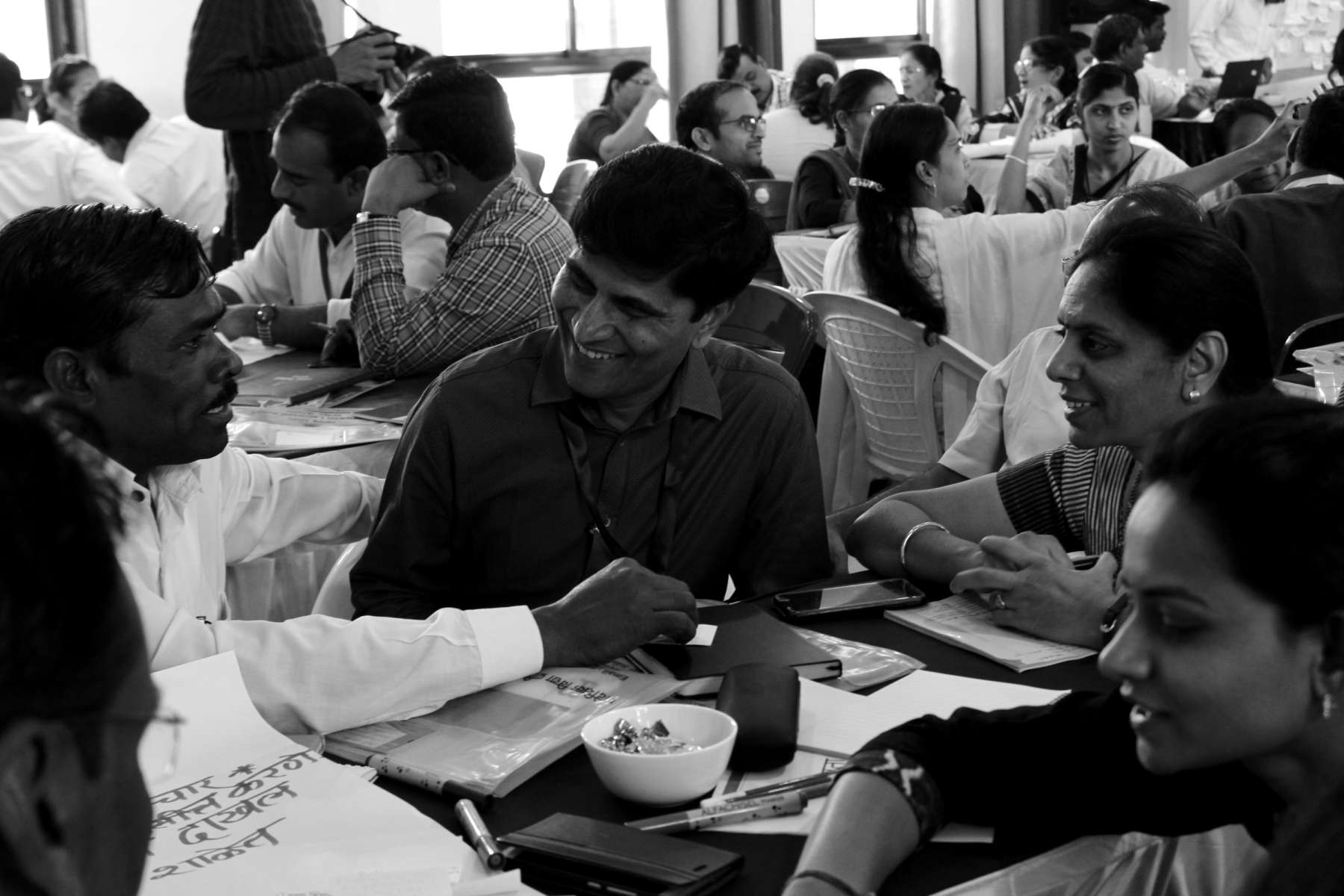
Government schools which deliver the best results have always had a supportive and invested officer. | Picture courtesy: Leadership for Equity
About 60 percent of officers across levels stated the need for better team management practices, such as resource allocation to programmes, division of labor within teams, and ensuring accountability within team members across levels.
Most respondents across cadres of state, district, and block levels felt there was a mismatch of the work mentioned in their job charts and the work they were actually doing. Some officers also mentioned that there was no clear job chart for their roles, which led to unclear goals, inefficiency, and a feeling of being unsuccessful.
“There is no future-oriented plan, hence no calendar. People get work assigned randomly and it becomes difficult to manage.” – Senior Lecturer, DIET.
One key finding of the study was the lack of any ongoing professional learning spaces for government officers across cadres and hierarchies. On further reading, we found that the state training policy mandates training of officers at different time intervals of their career or in case of a department transfer. In some cases, the time distribution for such training could stretch to as far as five years. Because of this:
- Peer learning seemed to interest more than 87 percent of officers, as they felt that such a space will allow them to share their best practices, challenges, and diverse solutions on an ongoing basis. Many respondents also felt that it could help them gain more perspectives from existing knowledge in the government system and enable a positive work culture.
- Online courses: Surprisingly, approximately 70 percent of officers expressed willingness to access online training courses over in-person training, across varied age groups.
“Few things where I feel the need for support are:
- Technology training for extension officers/kendra pramukh’s on the management of data.
- How to manage time with different activities.
- Coaching and mentoring methods.” – A block education officer.
A day in the life of an education officer
To supplement our quantitative findings, we shadowed different cadres of officers to understand their ground realities. Here is one example of what a day in the life of an education officer looks like:
Mr Akshay* is an education officer in one of the largest districts of Maharashtra. He is in charge of providing quality access and education to more than 2.3 lakh students studying in about 3,500 schools. For this, he manages a sanctioned staff of more than 12,200 teachers and officers spread across 14 blocks in the district; with about 40 percent vacancy at the field officer level.
Mr Akshay’s day usually starts at 9 am, though sometimes it can start as early as 7.30 am (if he needs to get work done before his regular meetings). His mornings are usually spent dealing with a pile of files that need to be read, processed, and approved—these include teacher transfer requests, RTI queries sent by the ministry, legal cases about (mostly private) schools, proposals from schools and gram panchayats, and several smaller requests from zilla parishad and/or gram panchayat members. Amidst this, Mr Akshay spends time with visitors—journalists, teachers, block education officers, and local leaders. With the lack of the required number of staff, the steady flow of new files and visitors remains constant throughout the day, while the frequency of phone calls from seniors, schools, and other department stakeholders come in with varying intensity.
Throughout the day, Mr Akshay shifts from people management, to approving budgets, to coordinating with departments, to dealing with visitors, to state-level queries, to his individual priorities for the week. Depending on the urgency of the matters on any particular day, Mr Akshay’s day stretches well beyond the comfortable 6 pm, to as late as 10.30 pm.
The need for greater investment in officer development
The more we learn about our massive Indian school systems, the more apparent the need for the continuous professional development of officers becomes.
Achieving sustainable learning outcome improvement requires strong local leadership amongst field officers.
A 2018 BCG survey found that out of 26 workplace satisfaction indicators, respondents ranked ‘learning and training opportunities’ and ‘career development’ fourth and fifth, respectively. The findings found that building employee capability is critically linked to building organisational capability, which in turn contributes to improved organisational outcomes. Similarly, our analysis covers the challenges faced by education officers in Maharashtra and also identifies the areas of capacity building for them.
As we work with the complex hierarchical systems of Maharashtra, we are learning that the government schools which deliver the best results have always had a supportive and invested officer—be it Kumte in Satara district, or Manwath in Parbhani district.
India has been struggling to provide high-quality learning for the 150 million students studying in its government-run schools. Achieving sustainable learning outcome improvement needs the school system to thrive, and that in turn requires strong local leadership amongst field officers. In the long run, the micro innovations happening at the school-level will sustain only if the school-, cluster-, and block-level managers are able to drive, sustain, and scale them. It is with this intention that we have to collectively seek greater investments of time and money to develop our field officers.
* Names changed to maintain privacy.
—
Know more
- Learn about the five fundamentals of talent management within the government workforce.
- Read this study from Nigeria about the challenges to effective management of public sector organisations in an institutionally corrupt society.
- Understand why it is important to maintain investment in learning and development in the public sector, through this discussion paper by the Australian Institution of Management.

